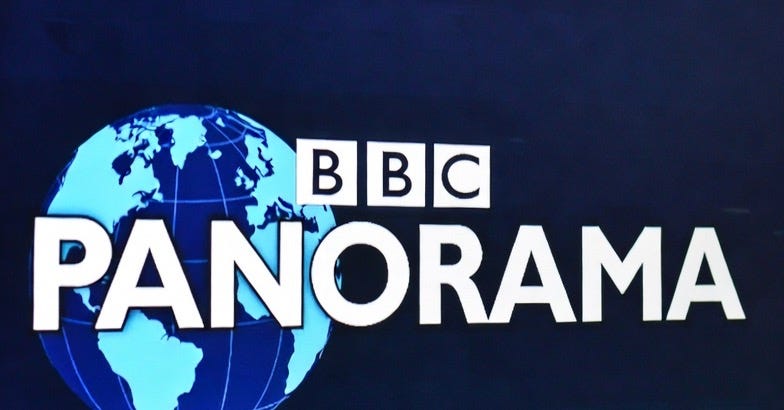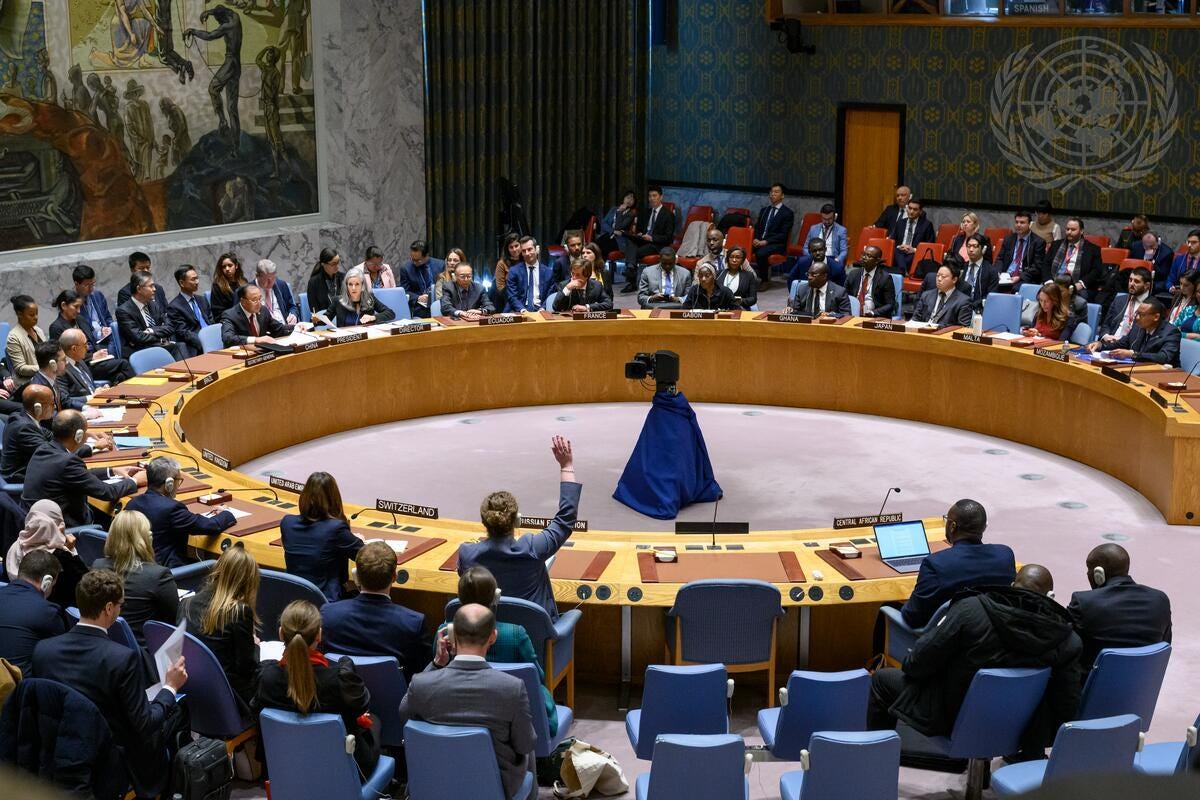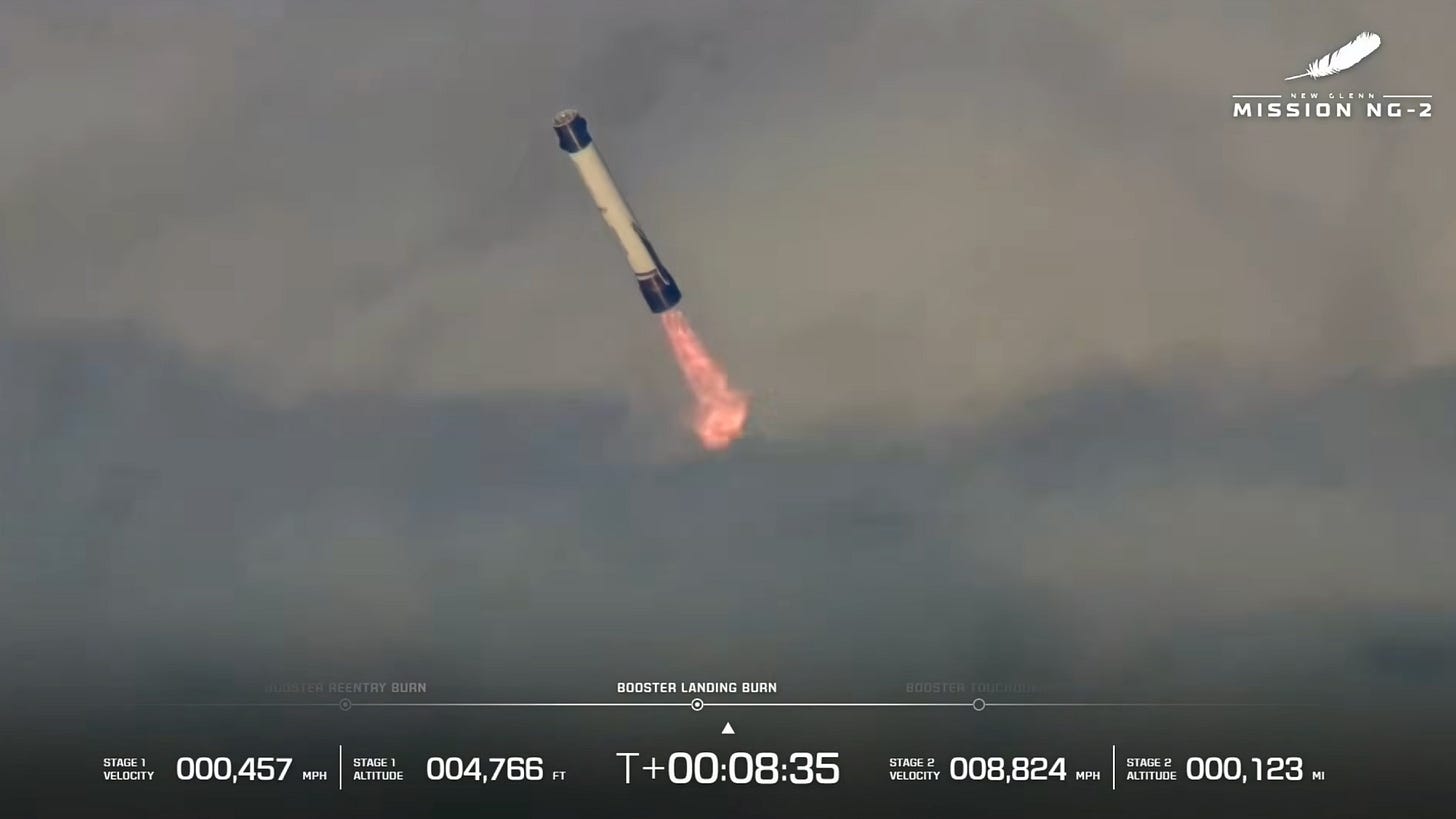10 Things Global News - 14th November 2025
Interesting and important news from around the world
Kyiv Hit by Major Overnight Strikes
Russia Uses Spare Refinery Capacity to Offset Drone Damage
BBC Apologises to Trump Over Edited Speech
US Launches ‘Southern Spear’ as Military Build-Up Escalates
RSF Pushes East as Sudan War Intensifies
US Gaza Plan Meets Resistance at UN
France Marks a Decade Since Paris Attacks
Blue Origin Nails New Glenn Landing
China Home Prices Fall at Fastest Pace in a Year
Global Markets Extend Sell-Off on Tech Weakness
On this day …..
On this day in 1922, the British Broadcasting Company aired its first daily radio bulletin from London. Established by wireless manufacturers to serve the public interest, the BBC sought to use radio to inform and educate a rapidly changing nation.
Over time, it evolved into one of the world’s most influential broadcasters, shaping how news is reported and trusted.
More than a hundred years on, the BBC still stands as both a symbol and a test of what public broadcasting can achieve in a fragmented media landscape - does its recent controversy tarnish its image?
Russia launched a large combined attack on Kyiv early this morning, triggering explosions, fires and widespread debris across the capital. At least 11 people were injured, and five were taken to hospital, including a pregnant woman and a man in critical condition. Officials urged residents to remain in shelters as the strikes continued, warning that power and water disruptions were possible.
Debris from intercepted weapons fell in several districts, damaging residential and nonresidential buildings in areas such as Darnytskyi, Dniprovskyi and Podilskyi. Fires were reported in multiple locations, and authorities confirmed damage to Kyiv’s heating system, with service interruptions in one district. Regional officials also reported damage to critical infrastructure and a civilian injury outside the city.
The attack came as European Union officials renewed pressure on Ukraine to advance anti-corruption reforms after a major energy-sector scandal. However, they also said that financial and political support would continue as Kyiv works to manage the effects of Russia’s invasion.
Sources: The Guardian, The Independent
Russia’s oil refining volumes have fallen only modestly this year despite extensive Ukrainian drone strikes on refineries, depots and pipelines. Industry sources said processing slipped by about 3% from January to October as plants restarted reserve units and repaired damaged facilities. At the height of attacks and planned maintenance between August and October, around 20% of capacity was offline, yet overall output declined only 6% to roughly 5.1 million barrels per day, a drop of 300,000 barrels per day from last year.
Russian refineries were operating below full capacity before the strikes, enabling plants to bring spare units online and cushion the impact. The country’s total refining capacity is estimated at around 6.6 million barrels per day, although it is rarely fully utilised.
Meanwhile, Ukraine has intensified long-range drone operations aimed at disrupting fuel supplies to Russian forces and limiting Moscow’s oil revenues. However, Russia no longer publishes official refining data, and its energy ministry declined to comment.
Sources: Reuters, Mezha Ukraine
The BBC has apologised to President Donald Trump for an edited Panorama clip that spliced parts of his 6 January 2021 speech together, creating what it called the mistaken impression that he had issued a direct call for violent action.
The corporation said it would not rebroadcast the 2024 programme, but it rejected Trump’s demand for compensation and strongly disputed that his legal team has grounds for a defamation claim. Lawyers for Trump had threatened to sue for $1bn unless the BBC retracted the documentary and apologised.
The case escalated after a second misleading edit, broadcast on Newsnight in 2022, resurfaced on Thursday. In both instances, separate remarks from Trump’s original speech were presented as a single continuous sequence.
BBC chair Samir Shah has written personally to the White House expressing regret, while the BBC has defended its position by arguing the edits were unintentional and that the documentary contained multiple pro-Trump voices.
Sources: BBC, FT
The US has formally launched Operation Southern Spear, a new mission targeting what Washington calls “narco-terrorists” across Latin America. Defence Secretary Pete Hegseth said the operation, led by Joint Task Force Southern Spear and US Southern Command, will defend the US homeland and disrupt drug-trafficking networks.
His announcement followed confirmation that US forces have carried out at least 20 strikes on vessels in the Caribbean and Pacific, with officials saying there were no survivors in the most recent incident.
The operation marks a substantial expansion of US military activity in the region. Nearly a dozen Navy ships and about 12,000 sailors and Marines are positioned ahead of the arrival of the aircraft carrier USS Gerald R Ford, which analysts say signals pressure on Venezuela.
However, US officials have not provided evidence for the lethal maritime strikes, which have reportedly killed around 80 people so far. Meanwhile, Venezuelan authorities accuse Washington of using false narratives to justify its actions and have mobilised almost 200,000 personnel in response.
Sources: Newsweek, Al Jazeera
The Rapid Support Forces are pushing east from Darfur after capturing al-Fashir, shifting the centre of Sudan’s civil war towards the Kordofan region. Their advance has seized the strategic town of Bara in North Kordofan and triggered heavy clashes and drone strikes, even though the RSF accepted a U.S.-backed ceasefire proposal last week. The army has not joined the truce, and fighting has continued, limiting prospects for increased humanitarian access.
Survivors from Bara describe revenge attacks, summary executions and looting by RSF fighters, with a Sudanese activist group estimating hundreds killed, though this has not been independently verified. Meanwhile, up to 50,000 people have been displaced from Kordofan and famine conditions have been reported in Kadugli, with al-Dalanj likely in the same state. Both sides are reinforcing positions and relying more on drones, and the U.N. human rights chief warns that troop movements and intensified strikes indicate preparations for wider hostilities.
Sources: Reuters, Uzalendo News
The U.S. push for a UN-mandated stabilisation force in Gaza is facing firm opposition from Russia, China and several Arab states, who object to a transitional “Board of Peace” and the absence of a formal role for the Palestinian Authority. Washington has kept the board in the latest draft while adding language on Palestinian self-determination to ease concerns.
However, divisions inside the Security Council have widened, even as some members argue that swift approval is needed to preserve momentum in the ceasefire process. The U.S. warns that attempts to block the resolution will have “grave, tangible and entirely avoidable consequences” for Palestinians. Meanwhile, Russia has circulated a counter-proposal.
The draft links Israeli withdrawal to agreed security benchmarks and outlines a potential path toward Palestinian statehood after reforms. But questions persist over the board’s composition, demilitarisation, and whether Russia or China will veto the proposal.
Sources: Associated Press, Times of Israel
France marked ten years since the November 2015 attacks with ceremonies across Paris, as President Emmanuel Macron addressed survivors and the families of the 130 people killed. He described their pain as “unbearable” and said France would do everything to prevent another attack. Bells rang out at Notre Dame, while first responders read the names of those killed that night, including two survivors later recognised as victims after dying by suicide.
The commemorations took place at the Stade de France, the Bataclan and other sites attacked by Islamic State gunmen and bombers. Macron praised emergency workers and residents who helped the wounded, while relatives spoke of the lasting absence left by those killed. Meanwhile, Jesse Hughes, who had been performing at the Bataclan, sang with a choir of survivors.
Macron said 85 attacks had been foiled over the past decade. As the ceremonies continued, officials noted that the sole surviving member of the cell, Salah Abdeslam, remains in prison. A terrorism memorial museum is due to open in 2029, displaying hundreds of objects donated by families.
Sources: Le Monde, The Guardian
The Jeff Bezos rocket company, Blue Origin has landed its New Glenn booster at sea for the first time, marking a significant technical breakthrough for the company. The booster set down on the Jacklyn platform after launching NASA’s ESCAPADE mission, achieving what only SpaceX had previously done with an orbital-class rocket. The landing followed a flight from Cape Canaveral, where the rocket lifted off after brief countdown interruptions.
The success comes after New Glenn’s first launch in January reached orbit but failed to recover the booster. This time, guided re-entry manoeuvres and engine burns returned the nearly 190-foot booster to Earth, providing a path toward reuse and reduced costs. Meanwhile, the rocket deployed two spacecraft headed for Mars to study its magnetic environment.
The milestone strengthens Blue Origin’s competition with SpaceX and supports future missions, including a large lunar lander planned for next year.
Sources: New York Times, Washington Post
China’s housing downturn deepened in October as new home prices fell 0.5 per cent month on month across 70 cities, the steepest drop in a year. The declines cut across all tiers, with only six cities posting gains. First-tier cities fell 0.3 per cent overall, although Shanghai recorded a modest rise, while Beijing, Shenzhen and Guangzhou all slipped. Prices in second- and third-tier cities also weakened, reflecting broad pressure across the market.
The fall follows years of tightening and financial strain on developers, many of which face liquidity pressures and defaults. As a result, firms are cutting prices to recover cash, contributing to the slide in primary and resale markets. Meanwhile, confidence remains fragile despite more than 510 local easing measures this year and moves by major cities to relax purchase restrictions.
Analysts say the market is still deflating, although cheaper prices and lower down payment requirements may offer opportunities for some buyers.
Sources: South China Morning Post, Business Times
Global markets fell sharply as a U.S. tech sell-off spread across Asia and Europe, driven by concerns over stretched valuations and renewed doubts about Federal Reserve rate cuts. The Nasdaq slid between 1.8 and 2.3 per cent, while the S&P 500 declined as investors reassessed the strength of the AI-led rally. Asian markets echoed the downturn, with South Korea’s Kospi down 2.6 per cent and Japan’s Nikkei off 1.6 per cent.
The pressure intensified in AI-linked stocks. SoftBank and SK Hynix dropped more than 6 per cent, Samsung slid 4 per cent and Taiwan Semiconductor fell 1.8 per cent. Analysts said investors were becoming more selective about AI as weaker earnings guidance and policy uncertainty weighed on sentiment.
Meanwhile, European futures softened and Treasury yields edged higher after a Federal Reserve official signalled a high bar for further easing. Rising yields added to caution across global markets.
















